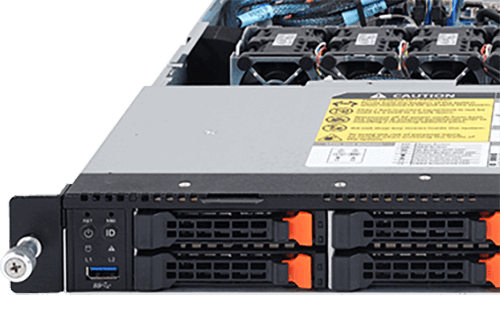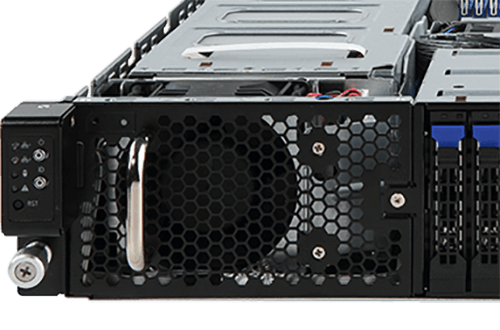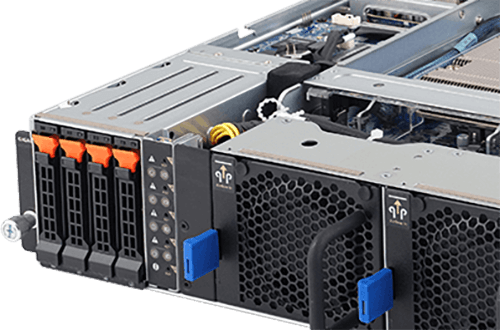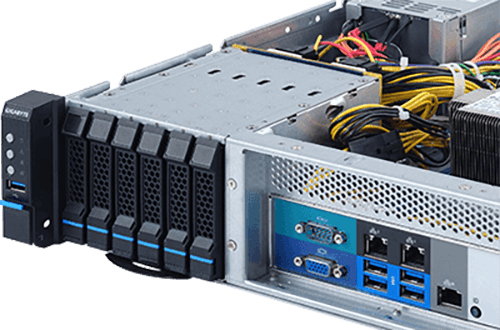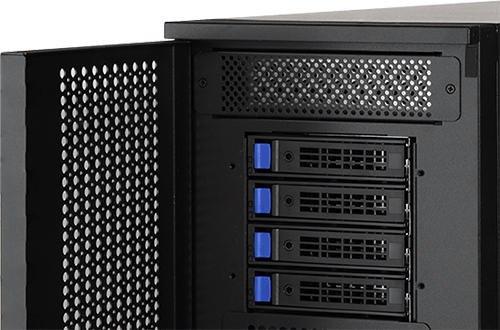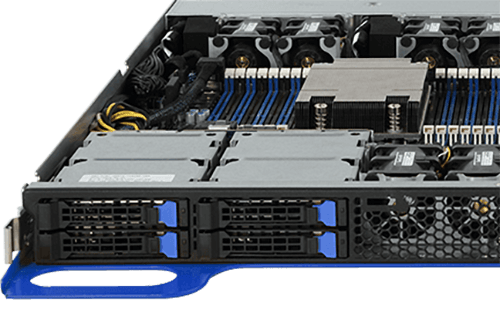GV-N750OC-1GI
- Powered by NVIDIA GeForce GTX 750 GPU
- Integrated with the first 1024MB GDDR5 memory and 128-bit memory interface
- OC Edition : Base 1059MHz/Boost 1137MHz (Standard- Base:1020MHz Boost:1085MHz)
- Features Dual-link DVI-I / DVI-D / HDMI*2
- Support PCI Express 3.0 x16 bus interface
- System power supply requirement: 400W
-
Support 4K @ 60Hz Via Two HDMI

Current graphic cards do not support HDMI v2.0 specification, it is required to use two HDMI v1.4 output to support Ultra HD resolution - 4096x2160@60Hz. With a monitor features HDMI Dual mode, users can experience an impressive 4K HD enjoyment with the latest technological advancements!

-
GIGABYTE custom-designed 10 cm cooler

As opposed to the stereotype, GIGABYTE is able to maximize fan size to 10cm with the latest cooling design. With a 10cm fan, the card is virtually silent that its noise level runs much lower
-
Ultra Durable 2

 Ultra Cooling - Low RDS(on) MOSFET Design
Ultra Cooling - Low RDS(on) MOSFET Design Low Power Loss - Ferrite Core Choke Design
Low Power Loss - Ferrite Core Choke Design Longer Life - All-Solid Capacitor Design
Longer Life - All-Solid Capacitor Design -
Gold plated HDMI

Gold plated, durable large contact area connectors have been used for optimum signal transfer between connections
-
Up to 4 displays on a Single Card

Support up to four displays on a single card. Satisfy your multi-screen setup, high definition and extreme gaming experience.
-
OC GURU ll

Brand-new instinctive user interface, easier to monitoring and adjusting all important settings. Users can set up MONITORING, GPU CLOCK, MEMORY CLOCK,FAN, OSD, ONLINE SUPPORT and update driver, BIOS directly.
-






* Terminy „HDMI” oraz „ HDMI High-Definition Multimedia Interface ”, charakterystyczny kształt produktów HDMI (HDMI trade dress) oraz Logo HDMI stanowią znaki towarowe lub zastrzeżone znaki towarowe spółki HDMI Licensing Administrator, Inc.
* Zamieszczony materiał został udostępniony jedynie w celach informacyjnych. GIGABYTE zastrzega sobie prawo do wprowadzania zmian w specyfikacji produktu i udostępnionych informacji o produkcie bez wcześniejszego powiadomienia.
* Przedstawiane dane są oparte na maksymalnych teoretycznych wydajnościach przedstawionym przez producentów chipsetów lub organizacji określających zakres tych specyfikacji. Rzeczywista wydajność może się różnić w zależności od konfiguracji systemu.
* Wszystkie znaki towarowe są własnością ich właścicieli.
* Z uwagi na budowę systemu, zakres pamięci może się różnić.







